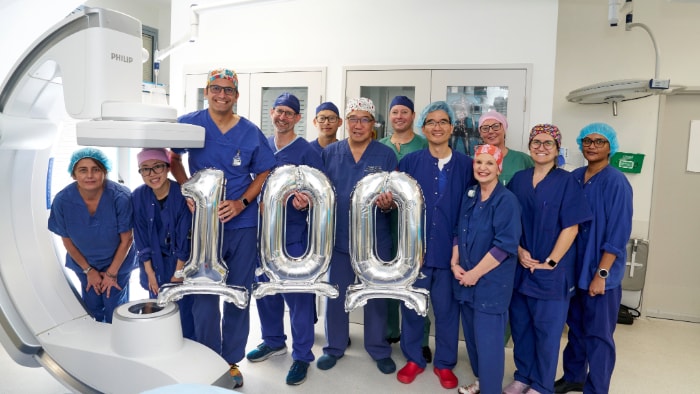Philips leaders reflect on a future of radiology following the insightful meeting at RSNA 2023 where innovation and new perspectives in patient care were uncovered.
In November, the radiology community convened at RSNA 2023, the world’s leading radiology event held in Chicago. An annual gathering of some of the most established radiologists and partners across all regions, this year’s action-packed five days offered a space for important dialogues and exchange of best practices that will chart the future for radiology and patient care.
Post-event, amidst the excitement of the powerful potential radiology holds to transform patient diagnosis and care, we sat down with Peter Quinlan, Managing Director, Dr Mark Burby, Vice President, Health Systems and Solutions and Chris Kim, Imaging Business Leader of Philips APAC to discuss their reflections from RSNA 2023 and answer a key question on what this means for APAC – what the future of radiology holds for healthcare leaders in the region, and the role of Philips in taking the step towards the beyond.
Leading a discovery to seeing beyond - Peter Quinlan, Managing Director, Philips APAC
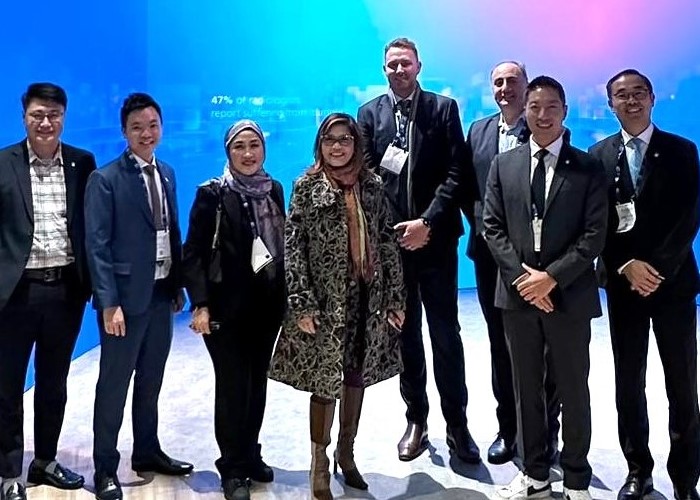
Radiologists seldom see the patients whom they save, just their scans. I spent five eye-opening days at RSNA 2023 interacting and discussing with healthcare leaders about the future of care delivery and as I was envisioning the future of radiology, I constantly went back to that thought. Although radiologists seldom meet their patients directly, they see so much more, and their connection in a patient’s journey is critical – from prevention, detection, to diagnosis and monitoring, precision is essential.
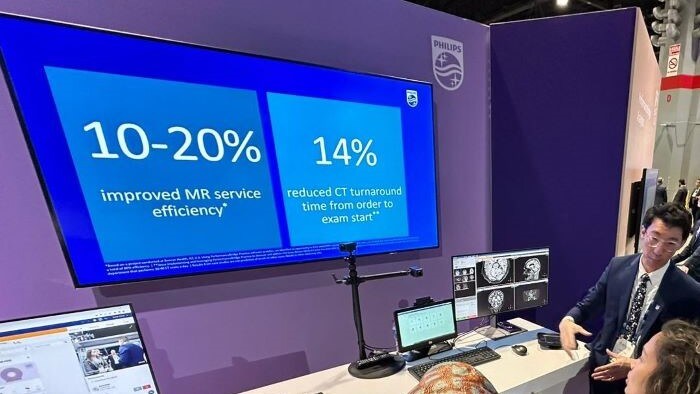
In APAC, the demand for medical imaging has grown dramatically over the last few decades and radiology leaders are under pressure to optimize radiology workflow to improve precision diagnosis and care. This is coupled with the additional task of reducing patient and staff stress, as well as improving productivity.
These significant challenges underline the need for a radical change in radiology, one that empowers healthcare professionals to see beyond to a new perspective on patient care, and I am heartened to have witnessed the commitment to healthcare digitalization from my interactions at RSNA.
As healthcare leaders, we can play a bigger role in seeing beyond clinical complexities and workflow obstacles, leveraging technology that can enable healthcare systems to address the most pressing challenges. At RSNA, it was incredibly exciting to observe the high level of interest in our innovations that integrate AI, in improving patient outcomes, increasing productivity and maximizing value across the lifecycle. All these point to reducing time to diagnose while ensuring quality. By improving the experience of people behind the image through the gift of time, we can make it easier for healthcare workers to focus on what matters in delivering the best care to their patients.
Leading as a trusted partner - Mark Burby, Vice President Health Systems and Solutions, Philips APAC
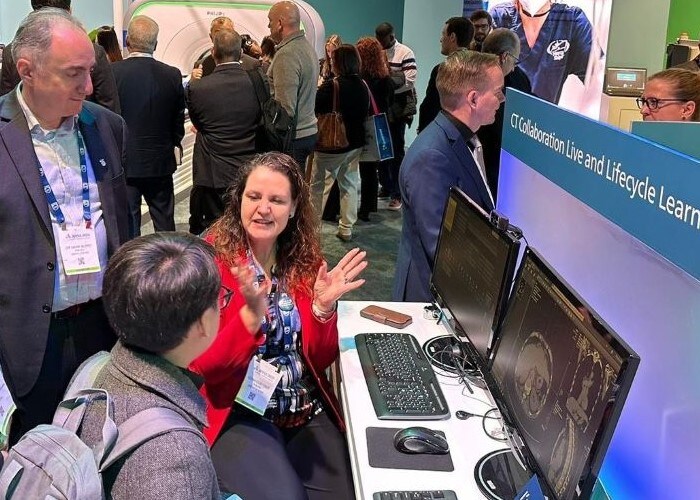
My engagements with our APAC healthcare customers and partners at RSNA 2023 gave me valuable insights on the challenges they face. Balancing workforce shortages, without compromising patient-centric care is one of the most pressing requirements of our healthcare systems today. Many of our customers see great value in streamlining radiology workflow across their imaging technologies to drive more efficiencies in their operations and alleviate pressure for their staff.
In fact, radiology leaders are seeking reliable, efficient, and sustainable technology solutions and are willing to invest in these. This sentiment resonates across the region. According to Philips’ 2023 Future Health Index, healthcare leaders in APAC are increasing their investments in digital health technologies, with 67% of those surveyed already using or planning to use these to relieve the impact of staff shortages. Beyond adopting these technologies, they are looking for an end-to-end partner to provide insights and updates over the lifecycle of these technologies, all focused on improving clinical and operation performance. Also, we cannot forget that sustainability remains a high priority. Many leaders are cognizant that climate-friendly practices, and infrastructure are crucial in building equitable and accessible healthcare.
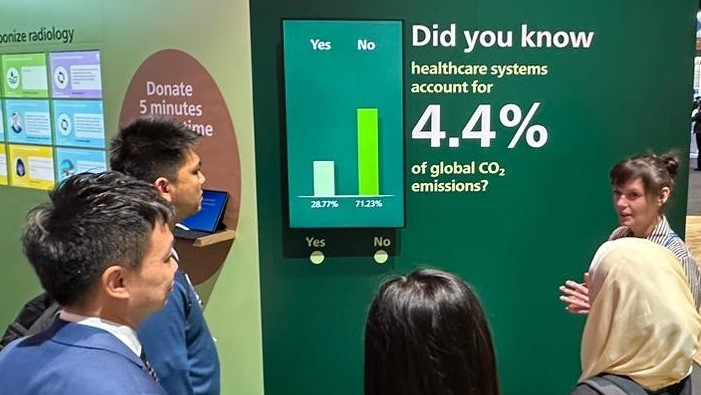
That is where we come in. Our solutions and services are designed with these needs in mind, and our role is to be the trusted partner who offers integrated insights and solutions. Not only do we provide first time right imaging, predictive insights, and integrated informatics, but we also offer fully automated patient- and staff-centric flexible workflows, on-demand communication, and education.
As an end-to-end partner, we make available services, upgrades, and clinical offerings that can extend the lifetime value and uptime of our systems. Above all, we leverage our long-standing commitment in environmental sustainability to bring technologies which enable our customers to further their sustainability efforts. In this region alone, we have established more than 30 long-term strategic partnerships, which have seen great success in bringing this overall vision to life.
Leading through innovation - Chris Kim, Imaging Business Leader, Philips APAC
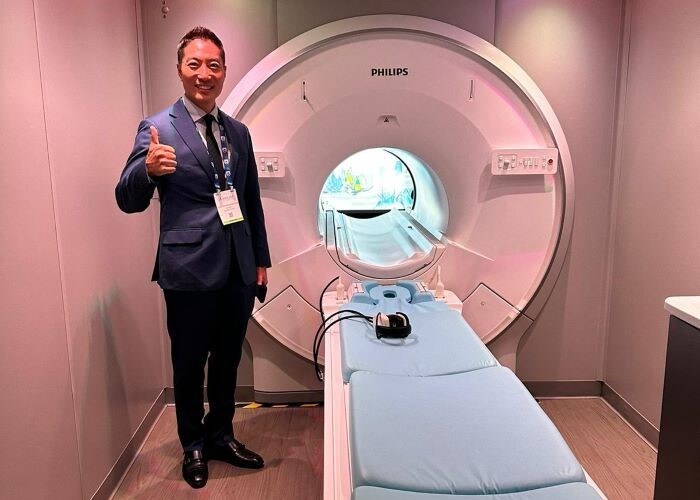
At RSNA, our customers were very excited by the strong showcase of Philips innovations, and I was proud to observe how our efforts are steps forward in the right direction, helping them to address their pain points.
Meeting customers’ needs on sustainability, our world’s first mobile MRI system with helium free operations delivers patient-centric MRI services where and when needed, using less helium than a non-sealed magnet. The system not only offers quality MRI services, but now provides accessibility to more patients in more places. Another innovation unveiled at the event was our next generation ultrasound system, which simplifies workflows in a single user interface to reduce complexities and ensure a more efficient and enhanced staff experience. Moreover, we presented our integrated diagnostics approach, together with our AI-enabled diagnostic imaging and cloud-based enterprise informatics solutions which allow radiologists and clinicians to increase operational efficiency and gain the necessary insights. The common thread between all our innovations – they are designed for our customers to improve workflows and diagnostic confidence. This ultimately leads to a higher quality of care delivery.
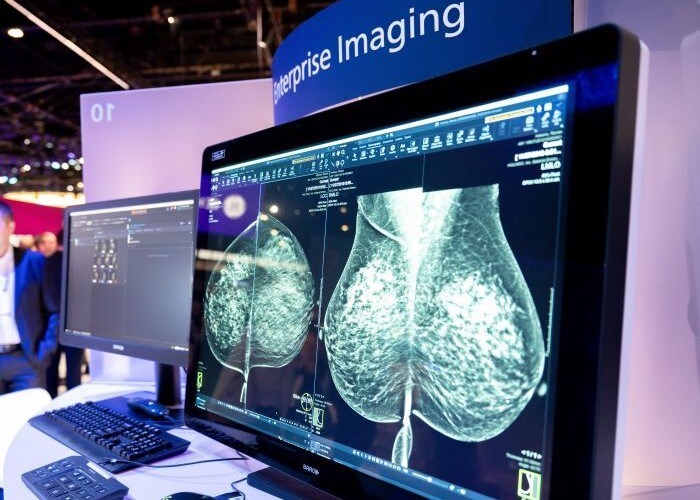
We see this already in action with front-line specialist medical service provider Heart of Australia. Leveraging Philips’ cutting-edge CT for their mobile screening programs with miners and their immediate families, Heart of Australia successfully delivered diagnostic-quality imaging by bringing care to where the patients are. This work continues to expand as mobile units are currently deployed across underserved rural and remote communities, delivering equitable and accessible care to patients that most need it. Going back to the question of ‘What does the future of radiology in APAC look like?’, the insights from our Philips leaders paint a positive future of radiology in APAC and an optimistic outlook on the new healthcare delivery model.
A positive future of radiology in APAC
Many important dialogues at RSNA highlighted the importance in understanding how we can equip healthcare providers across radiology workflow with innovations and support to deliver better care. As a partner and leader in health technology, Philips is committed to continue working hand in hand with our healthcare providers to see beyond to a new perspective and look forward to a better future of healthcare.










